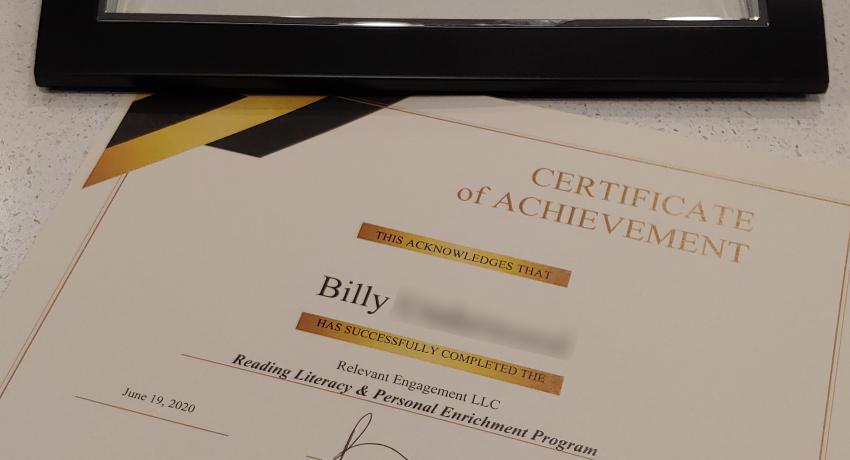Rashad Norris is the Director of Community Engagement at Highline Community College and Associate Adjunct Professor of Social Justice and Equity at City University. Through his consulting business, Relevant Engagement, Rashad also leads the Reading Literacy and Personal Enrichment Program for youth at Oakridge and Touchstone Community Facilities.
Rashad’s work with these youth is driven by the young people themselves and centers on cultural competency and consciousness-raising among Black and Brown youth and Youth of Color. Rashad makes it a point to get to know each individual before diving into his culturally-relevant, social justice-based curriculum. Reading is his strongest tool to educate and lift youth, and he believes it should be a part of every young person’s life.
“As we read, we talk about history, Black history, where we have been kept down by not being allowed to read and write – we take strong pride in our history,” says Rashad.
Advancing deep equity means recognizing the wounds and injustices of oppression and transforming the systems that perpetuate it. Through reading, Rashad encourages youth to understand language, disproportionality and personal history. This work helps them look at internalized racism and provides tools for self-advocacy and effective communication when they are released.
“They don’t understand the work adults are doing to make change – they don’t get it. So we have to lift them up and educate them. When we include youth in social justice work that adults are doing, they feel empowered to make change as well,” says Rashad.
Rashad leads a variety of projects with youth at Oakridge and Touchstone that develop youth’s sense of self and awareness. These include collaging with affirming words and reflective imagery, deep cultural reflection and brainstorming individualized word clouds that he later frames and gives to youth when they graduate from the program.
“He talks to us about real stuff. He breaks things down to us and doesn’t judge our opinions. He’s a person of color and can relate to us,” says Oakridge resident Jonathan.
Rashad’s work in our less-restrictive community facilities ties directly into DCYF’s racial equity and social justice strategic framework, helping to ensure that our programs and service delivery are culturally affirming and responsive. DCYF's Office of Racial Equity and Social Justice (RESJ) has also been partnering with Rashad to engage youth in this framework so they can co-create strategies to advance racial equity in DCYF’s strategic plan.

